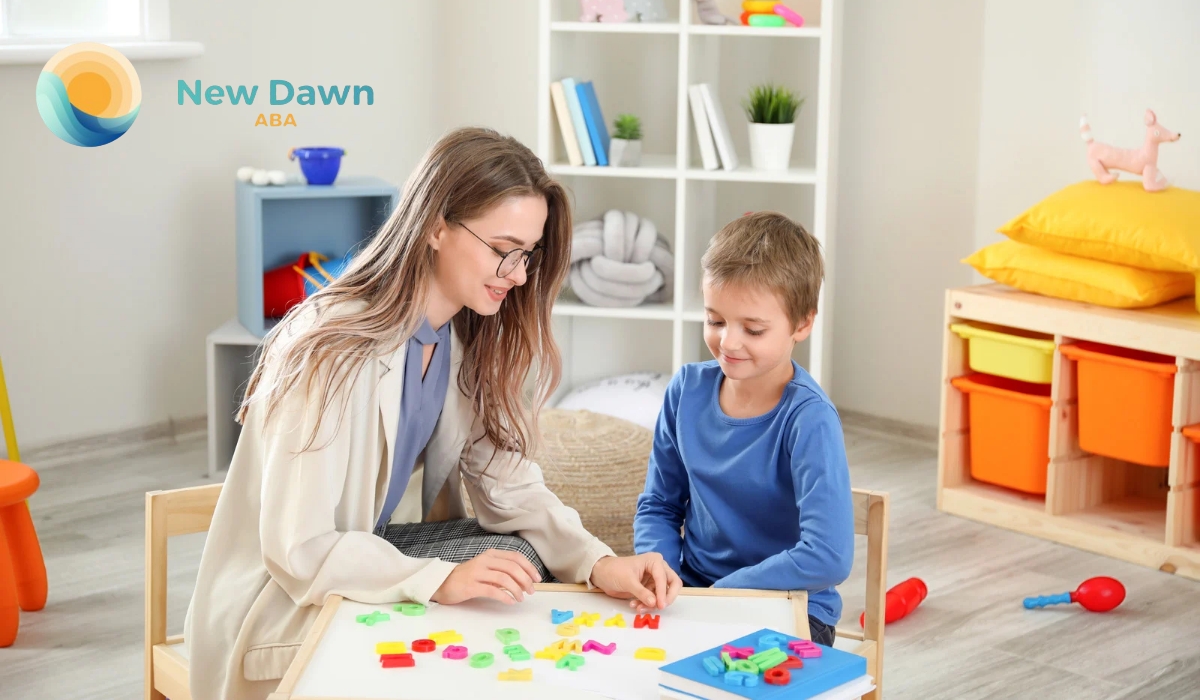Key Points:
- Autism is a lifelong neurodevelopmental condition and currently cannot be cured, but symptoms can be managed effectively.
- Early intervention, especially through evidence-based therapies like ABA, can greatly improve quality of life and independence.
- Understanding the difference between “curing” autism and supporting a child’s development is crucial for setting realistic, compassionate goals.
When a child is first diagnosed with autism spectrum disorder (ASD), parents often face a flood of emotions—concern, confusion, and a desire to do everything possible to help their child thrive. One of the most common and heartfelt questions asked is, “Can autism be cured?” or more specifically, “Is it possible to cure autism, and if not, what can be done?”
In the early days following a diagnosis, it’s natural for families to explore every option. After all, every parent wants to give their child the best chance at a fulfilling and independent life. This article addresses the key concerns around whether autism can be cured, explores proven treatment options, and offers practical strategies for parents navigating this journey with love and determination.
Is It Possible To Cure Autism?
No, autism cannot currently be cured. It is a lifelong neurodevelopmental condition. However, the good news is that with early intervention and consistent support, many individuals with autism can lead happy, successful, and independent lives.
When parents ask, “Is it possible to cure autism?”, it’s often rooted in a desire to help their child overcome challenges and live life with fewer limitations. While there is no cure that eliminates autism entirely, various treatments and therapies can help manage behaviors, improve communication, enhance social skills, and increase independence.
Autism is not a disease—it’s a different way the brain processes information and interacts with the world. That means the goal is not to “fix” a child, but to support their development in a way that honors their strengths and reduces barriers to learning and connection.
Understanding Autism as a Spectrum
Autism is called a “spectrum” for a reason. Each individual has a unique combination of traits, challenges, and abilities. Some children may have minimal support needs, while others require more intensive care. This range is why treatment must be highly personalized.
Autism can affect:
- Communication (verbal and non-verbal)
- Social interaction
- Sensory processing
- Repetitive behaviors or restricted interests
- Emotional regulation
Understanding this spectrum helps set realistic expectations. Instead of focusing on the idea of curing autism, it’s more effective to ask: What treatments and tools can help my child succeed?

Evidence-Based Treatments That Help
Although “curing” autism isn’t possible, there are many treatment options that significantly improve the quality of life and functioning for children on the spectrum. The most trusted treatments are grounded in scientific research and have a track record of positive outcomes.
Applied Behavior Analysis (ABA)
ABA therapy is widely considered the gold standard in autism treatment. It focuses on improving specific behaviors such as communication, social skills, and daily living skills by using positive reinforcement and structured teaching strategies.
Parents might see improvements in:
- Speech and language
- Following instructions
- Reducing challenging behaviors
- Increasing independence in daily tasks
ABA therapy programs are highly customized and adaptable to each child’s unique needs and goals.
Speech and Language Therapy
Communication is often a challenge for children with autism. Speech therapy helps children improve both verbal and non-verbal communication skills. For some children, this might mean learning to speak in sentences. For others, it could mean using picture systems or assistive devices to express themselves.
Occupational Therapy (OT)
OT helps children develop fine motor skills, hand-eye coordination, and the ability to perform everyday tasks like dressing, eating, or using the bathroom independently. It also addresses sensory processing issues, which are common in children with autism.
Social Skills Training
Since social interaction can be difficult for children with autism, many benefit from guided practice in understanding social cues, managing group play, and making friendships. Social skills groups and peer-based interactions can be especially helpful.
Parent Training And Support
One of the most important parts of autism treatment is empowering parents with tools, education, and emotional support. When parents understand how to reinforce therapeutic strategies at home, children often make faster and more meaningful progress.
Treatments To Approach With Caution
When families ask, “Is it possible to cure autism?” they may come across unproven or misleading claims. It’s essential to stay informed and protect children from ineffective or harmful treatments.
Be cautious of:
- “Miracle cures” or detox programs
- Dietary supplements that lack scientific backing
- Hyperbaric oxygen therapy
- Chelation therapy (unless medically necessary for another condition)
While a healthy diet, structured routines, and supportive environments all contribute to well-being, no supplement or experimental procedure can eliminate autism.
Focusing On Abilities, Not Limitations
One of the most empowering shifts a parent can make is moving from a mindset of “fixing” to one of “supporting and celebrating.” Children with autism often have incredible strengths, including:
- Exceptional memory
- Unique problem-solving skills
- Creativity
- Deep focus on interests
Therapy doesn’t aim to take these away. Instead, it helps children navigate challenges that may interfere with their learning or social development.
When parents and professionals work together, the results can be life-changing—not because autism has been “cured,” but because the child is thriving in their own way.

Signs That Your Child May Benefit From Therapy
If you're wondering whether it’s time to explore treatment options, consider the following signs:
- Difficulty with verbal or non-verbal communication
- Trouble making or keeping friends
- Repetitive behaviors that interfere with learning
- Sensory issues (e.g., sensitivity to light, sound, or textures)
- Delays in developmental milestones
Early intervention is most effective, but it’s never too late to start. Even older children and teenagers can benefit from evidence-based therapies like ABA.
What The Future Holds
While science has not discovered a cure, research continues to deepen our understanding of autism and how to support individuals on the spectrum. Advances in neurodiversity advocacy also mean that more educators, employers, and communities are learning how to create inclusive spaces.
Families are not alone in this journey. With the right support system, a child with autism can build a meaningful life filled with relationships, learning, and achievement.
Get Support With New Dawn ABA
If you're looking for effective, compassionate support for your child, New Dawn ABA offers individualized ABA therapy services designed to help children on the autism spectrum grow and thrive. Our focus is on teaching functional skills, improving behavior, and building meaningful independence through structured, research-backed methods.
We offer ABA therapy in Missouri and Colorado, with experienced therapists who are dedicated to helping families navigate autism with hope and confidence. Whether your child is just beginning their autism journey or you’re exploring new ways to support their progress, our team is here to help.
Reach out to us today to learn how our team can support your child’s development and well-being. Let’s work together to help your child shine.
Recent articles

At New Dawn ABA, we believe in brighter beginnings. Our team partners with families to build skills that matter—turning daily moments into meaningful progress and long-term independence.

.svg)
.svg)
.svg)
Quick Links
HomeAbout UsServicesResourcesCareersContact UsPrivacy PolicyOur Locations
MissouriColoradoKansasOklahoma (Coming Soon)Contact Information
.png)
720-784-4944
.png)
720-784-4945
.png)
info@newdawnaba.com
Copyright © 2025 New Dawn ABA - All Rights Reserved.




